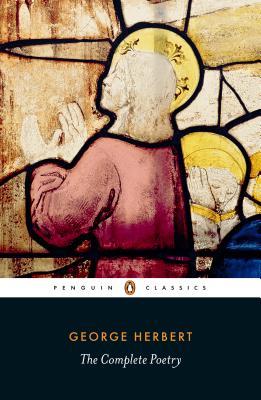The Complete Poetry
by George Herbert
A wonderful edition of Herbert's poetry, edited by his acclaimed biographer John Drury and including elegant new translations of his Latin verseA wonderful edition of Herbert's poetry, edited by his acclaimed biographer John Drury and including elegant new translations of his Latin verse
George Herbert wrote, but never published, some of the very greatest English poetry, recording in an astonishing variety of forms his inner experiences of grief, recovery, hope, despair, anger, fulfilment and - above all else - love. This volume, edited by John Drury, collects Herbert's complete poetry - including such classics of English devotional poetry as 'The Altar', Easter-Wings' and 'Love'. It also includes the verse Herbert wrote in Latin, newly translated into English by Victoria Moul.
For more than sixty-five years, Penguin has been the leading publisher of classic literature in the English-speaking world. With more than 1,500 titles, Penguin Classics represents a global bookshelf of the best works throughout history and across genres and disciplines. Readers trust the series to provide authoritative texts enhanced by introductions and notes by distinguished scholars and contemporary authors, as well as up-to-date translations by award-winning translators.
George Herbert wrote, but never published, some of the very greatest English poetry, recording in an astonishing variety of forms his inner experiences of grief, recovery, hope, despair, anger, fulfilment and - above all else - love. This volume, edited by John Drury, collects Herbert's complete poetry - including such classics of English devotional poetry as 'The Altar', Easter-Wings' and 'Love'. It also includes the verse Herbert wrote in Latin, newly translated into English by Victoria Moul.
For more than sixty-five years, Penguin has been the leading publisher of classic literature in the English-speaking world. With more than 1,500 titles, Penguin Classics represents a global bookshelf of the best works throughout history and across genres and disciplines. Readers trust the series to provide authoritative texts enhanced by introductions and notes by distinguished scholars and contemporary authors, as well as up-to-date translations by award-winning translators.
Paperback, 578 pages
Published April 2nd 2015 by Penguin Classics
tags: poetry
© 2025 Bibleportal.com 版权所有.

George Herbert was a Welsh poet, orator and priest. Being born into an artistic and wealthy family, he received a good education which led to his holding prominent positions at Cambridge University and Parliament.
As a student at Trinity College, Cambridge, England, George Herbert excelled in languages and music. He went to college with the intention of becoming a priest, but his scholarship attracted the attention of King James I. Herbert served in parliament for two years. After the death of King James and at the urging of a friend, Herbert's interest in ordained ministry was renewed.
In 1630, in his late thirties he gave up his secular ambitions and took holy orders in the Church of England, spending the rest of his life as a rector of the little parish of St. Andrew Bemerton, near Salisbury.
He was noted for unfailing care for his parishioners, bringing the sacraments to them when they were ill, and providing food and clothing for those in need.
Throughout his life he wrote religious poems characterized by a precision of language. He is best remembered as a writer of poems and the hymn "Come, My Way, My Truth, My Life."
... Show more